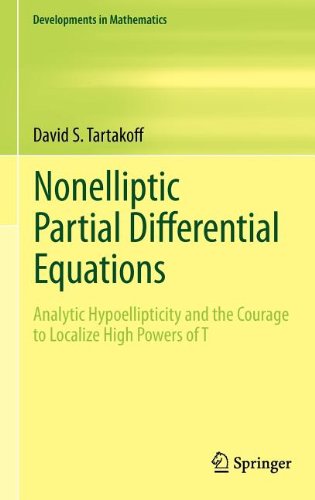

Most ebook files are in PDF format, so you can easily read them using various software such as Foxit Reader or directly on the Google Chrome browser.
Some ebook files are released by publishers in other formats such as .awz, .mobi, .epub, .fb2, etc. You may need to install specific software to read these formats on mobile/PC, such as Calibre.
Please read the tutorial at this link: https://ebookbell.com/faq
We offer FREE conversion to the popular formats you request; however, this may take some time. Therefore, right after payment, please email us, and we will try to provide the service as quickly as possible.
For some exceptional file formats or broken links (if any), please refrain from opening any disputes. Instead, email us first, and we will try to assist within a maximum of 6 hours.
EbookBell Team

0.0
0 reviewsThis second in the series of three volumes builds upon the basic theory of linear PDE given in volume 1, and pursues more advanced topics. Analytical tools introduced here include pseudodifferential operators, the functional analysis of self-adjoint operators, and Wiener measure. The book also develops basic differential geometrical concepts, centered about curvature. Topics covered include spectral theory of elliptic differential operators, the theory of scattering of waves by obstacles, index theory for Dirac operators, and Brownian motion and diffusion. The book is targeted at graduate students in mathematics and at professional mathematicians with an interest in partial differential equations, mathematical physics, differential geometry, harmonic analysis, and complex analysis.
In this second edition, there are seven new sections including Sobolev spaces on rough domains, boundary layer phenomena for the heat equation, the space of pseudodifferential operators of harmonic oscillator type, and an index formula for elliptic systems of such operators. In addition, several other sections have been substantially rewritten, and numerous others polished to reflect insights obtained through the use of these books over time.Michael E. Taylor is a Professor of Mathematics at the University of North Carolina, Chapel Hill, NC. Review of first edition: “These volumes will be read by several generations of readers eager to learn the modern theory of partial differential equations of mathematical physics and the analysis in which this theory is rooted.”(SIAM Review, June 1998)